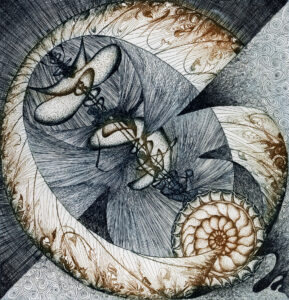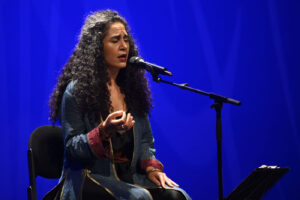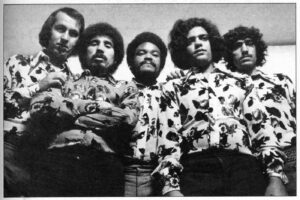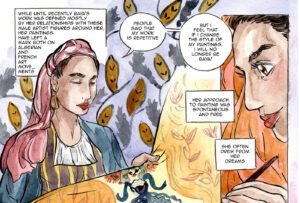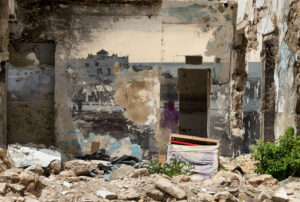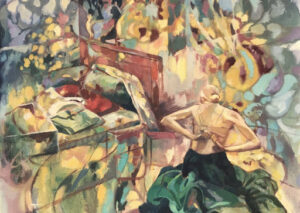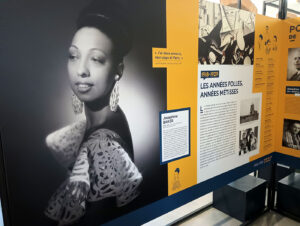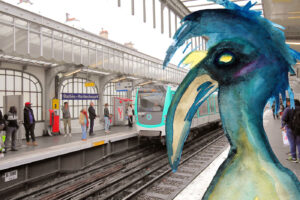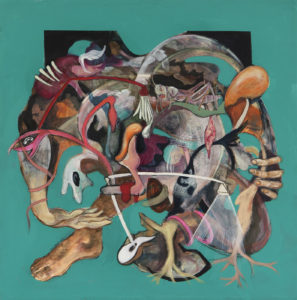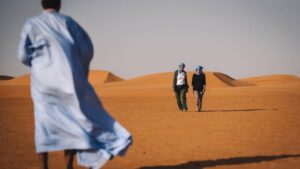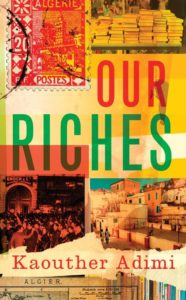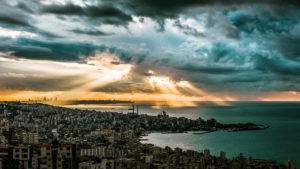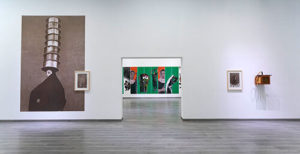Adil Bouhelal
“My parents’ life is like the war in Lebanon. The more I immerse myself in it, the less I understand.” The back cover of Beyrouthe-sur-Seine (“Beirut on the Seine”) begins with these two sentences and so, to try to see more clearly, Sabyl Ghoussoub, a Franco-Lebanese journalist, photographer and novelist, decides to interview them, without really knowing from which angle he will attack this imbroglio. He avails himself of recorded family interviews as well as postcards, photos, letters, notes, poems and articles written by his father. But this is a novel, and it invariably lends itself to embroidery.
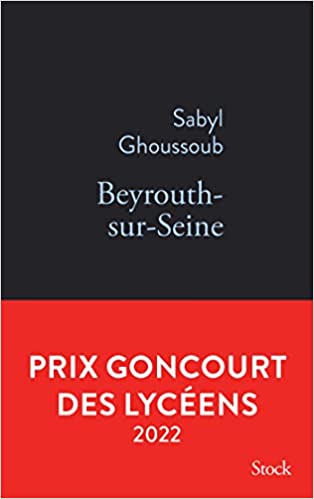 The family story Ghoussoub tells us is in fact the story of a country that never ceases to be martyred by the wars and crises it has had to face. It is beautiful, agitated, moving, full of twists and turns, at times tragic, but the novelist’s narration is always marked by an incisive humor, if not an exacting chronology.
The family story Ghoussoub tells us is in fact the story of a country that never ceases to be martyred by the wars and crises it has had to face. It is beautiful, agitated, moving, full of twists and turns, at times tragic, but the novelist’s narration is always marked by an incisive humor, if not an exacting chronology.
His story begins with the narrator’s parents’ departure for Paris in September 1975. Kaïssar and Hanane, newly married, are on their way to the French capital for two years of study before returning to Beirut. Seven months later, the Lebanese civil war breaks out, and will last 15 years. What was supposed to be a parenthesis becomes an unending interregnum.
Kaïssar is a left-wing intellectual, deeply in love with his young wife, but also with books and theater. He is a journalist, poet and director. In the early years he wanders the streets of Paris, fishing for newspapers in public garbage cans and stealing books from the Gibert Joseph bookstore. But he also gives lectures at the Sorbonne. A colorful character, he never stops insulting God and the three monotheistic religions during his lectures, even to the point of being let go, which — being the iconoclast he is — actually makes him supremely proud. He does, however, fear the wrath of the radicals in his country, as this passage reveals:
As a young man, my father took great pride in having been expelled from college. Long before we began recording our conversations, he had related [one particular] anecdote more than a dozen times. I had even used his story as inspiration for my first novel, The Jewish Nose.
Once printed, I slipped a copy of the book into my parents’ mailbox. The next few nights my father didn’t sleep. I still remember my mother’s phone call: ‘Sabyl, your father is nauseous. He’s been throwing up all over the place for a few days, he doesn’t go to the office anymore, you have to do something!’ My father was convinced that the Islamists would recognize him in the novel’s character and kill him in the street.
The narrator’s mother Hanane moves forward with immense nostalgia for her country and her family, which does not give her any peace. Long-distance calls and eventually WhatsApp allows her to cauterize the wounds of the couple’s forced estrangement. Many of the Lebanese in her circle contain her family and friends who have remained in the country, several dozen people in fact. She is as puzzling as her husband, a beautiful soul always ready to help others, but able to speak about one of the cousins who took part in a murderous vendetta in glowing terms (as it happens, the Ehden massacre in which Tony Frangié, his wife and his daughter were executed).
This famous cousin who killed [Tony Frangié’s] daughter, of whom Habib speaks in his letter, my mother introduced me to him one day in her village. Before meeting him, she said to me: ‘You’ll see, he’s something, a man. He killed with his own hands. Bam!’
That day, I was disgusted by my mother…
The two reconstitute in their Parisian apartment a small Lebanese bubble, with its two tiny gardens on the balconies and the living room that becomes the meeting place of the diaspora. Through short and punchy chapters, we meet Yala, his sister, and the siblings of Kaïssar and Hanane, who have remained in Lebanon. We also meet the major Lebanese political figures, the Gemayels, the Frangiés, the Joumblats. We witness the strange mutations of the different protagonists of this painful conflict, from victims to executioners.
What was supposed to be a family story full of tenderness and humor becomes a profound reflection on belonging to a land, a culture and the disarray of exile. The writing is fluid and the tone light even when the context is painful. This book written with infinite tenderness and love is both light and deep.
The Lebanese war has been told, analyzed and dissected from every angle, including by such masterful Lebanese writers as Hanan Al-Shaykh and Amin Maalouf. Sabyl Ghoussoub’s story stands out because he tells it through its consequences in Paris and the way his parents experienced it from afar. The last chapters look back at recent events including the explosion of the silos in the port of Beirut on August 4, 2020, and a moving passage on the question “what is Lebanon for you in the coming years?”
I leave it to the reader to discover the answer, which deeply moved me and which in my opinion reveals the profound personality of this author and the genesis of the book. Personally, I will never again listen to “Alone Together,” the magnificent piece by Chet Baker, without thinking of Sabyl Ghoussoub’s uncle Habib, wandering through the empty streets of Beirut, devastated by the war, up to the demarcation line, playing and singing:
Everyday that I awake, I must be mindful
That everyday is all I have to call my own
It’s everyday the sun will rise
Even though the dark clouds seem so low
It will only tell the truth, we are alone
Everyday that I believe, I must be mindful
That every belief I have is all I own
Ten thousand roads will all return here
Only reaping what they’ve sown
And it will only tell the truth, we are alone
We are all alone
Each one his own
We are all alone together
We are not without
What it’s all about
We are all alone
With each other
Everyday that I awake, I must be mindful
That everyday is all we have for us to change
To see everything as it really is
Everything we have, we have to give
And it will only tell the truth, we are alone
We are all alone
Each one his own
We are all alone together
We are not without
What it’s all about
We are all alone
We are all alone
We are all alone
With each other



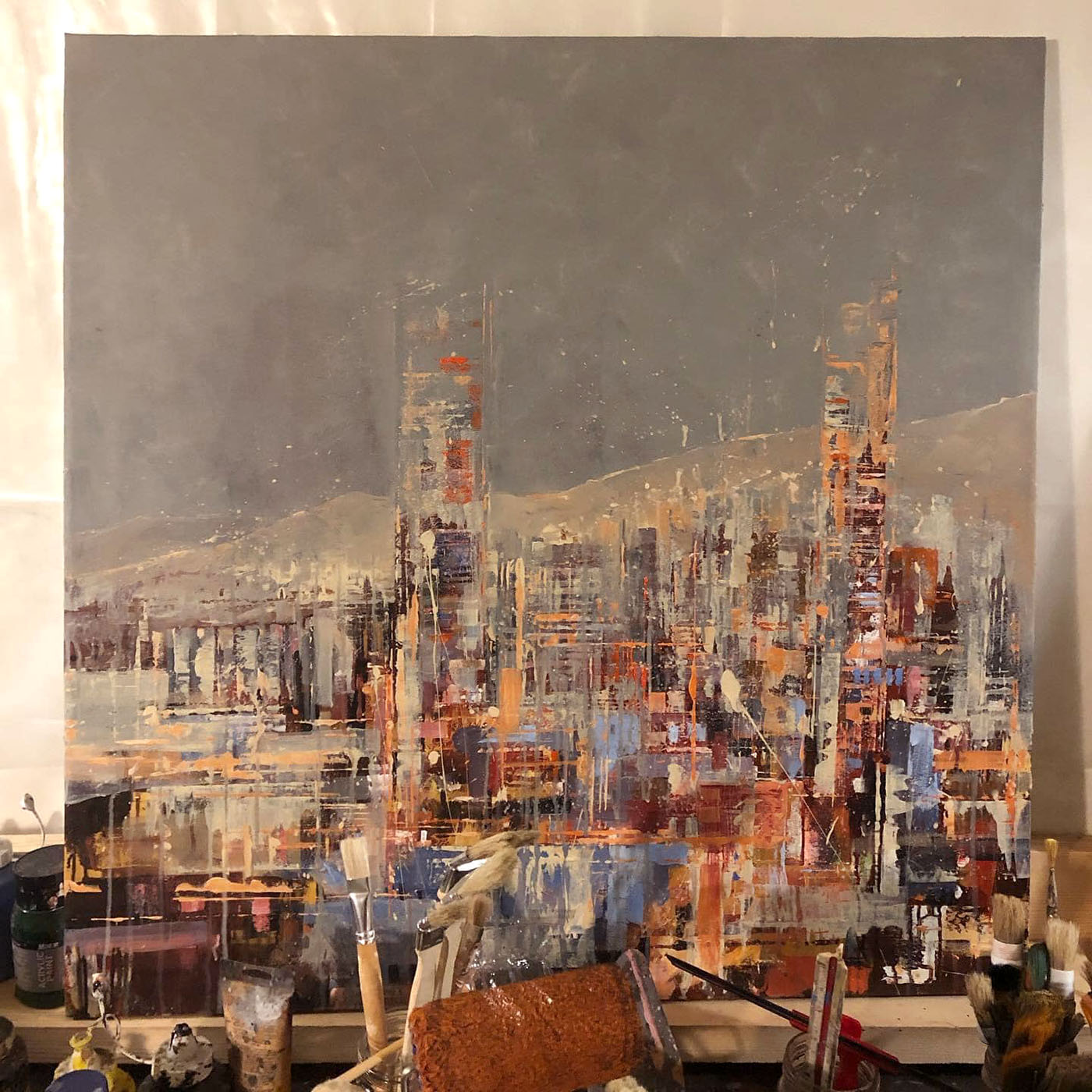
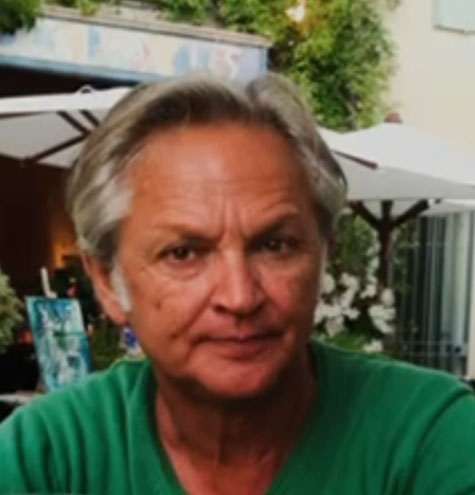


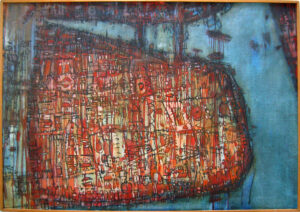




![Ali Cherri’s show at Marseille’s [mac] Is Watching You](https://themarkaz.org/wp-content/uploads/2025/09/Ali-Cherri-22Les-Veilleurs22-at-the-mac-Musee-dart-contemporain-de-Marseille-photo-Gregoire-Edouard-Ville-de-Marseille-300x200.jpg)

